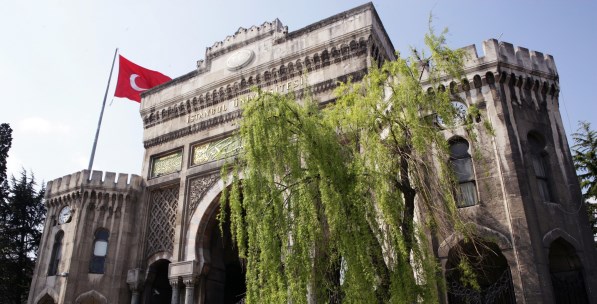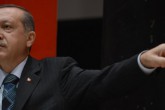It has recently become customary in Turkish media to resort to the “enlightened” views of renowned Western-educated academics and intellectuals in order to convey the depth of “political and economic calamity” affecting the country in recent months. Specifically, the international credibility of certain political scientists and economists is utilized to empower destructive criticisms of the government and doomsday predictions for the country. Yet, we are frequently shocked that most of the analyses conducted by these respected figures fail to take notice of basic factual realities, do not consider positive developments in the country do not offer any specific and concrete proposals for reform and frequently stress a neocolonial bias that Turkey is headed into systemic crisis.
For instance, when Ersin Kalaycıoğlu describes the governing style of Prime Minister Recep Tayyip Erdoğan via the notion of “competitive authoritarianism” and declares that Turkey is rapidly becoming another Russia or Venezuela in terms of undemocratic practices, he is taking concepts out of context and exaggerating the developments on the ground. Similarly Timur Kuran, a famous economist who made his academic career by charging that Islamic law is the main factor leading to underdevelopment in the Middle East, speaks about an “electoral dictatorship” after the victory of the AK Party in local elections. Here he does act more like an ideologue than a social scientist.
Also comments could be made concerning rather vague and unfounded criticisms of famous economist Dani Rodrik or economic historian Şevket Pamuk – a former instructor of mine – concerning the collapse of Turkey’s development model and their claims that the country is headed into unavoidable economic calamity.
To me, the common thread linking these analyses is a deep-seated cultural prejudice and ideological disposition that the conservative social alliance around the AK Party “should not” govern the country despite its clear electoral dominance. Therefore, every step toward the galvanization of a central state apparatus could be presented as a sign of “authoritarianism” and minor hiccups in the economy, common to all emerging economies, are labeled as signs of a looming economic crisis. This attitude itself carries the seeds of “intellectual authoritarianism” and is marred with a clear neocolonial bias telling the Turkish public who to elect (a more secular government), how to think and live (in a more Western-centric way) and how to decide on the country’s position in the global pecking order (conform to the Western alliance).
This neocolonial bias becomes evident when eminent political scientists of Turkish origin fail to give credit to administrative and legal reforms that are carried out in the context of EU accession negotiations to strengthen human rights and freedoms – particularly with the regard to the Kurdish reconciliation. Likewise, eminent economists keep criticizing the AK Party’s neoliberalism, overemphasis on the construction industry and the fragility of the current account deficit (buying up the fragile five narrative), but fail to mention strong export performance, fiscal discipline, a sustained growth record and the vibrant private sector capacity.
It seems that monolithic and idealized forms of liberal democracy and free market economics have been imposed on Turkey to produce logistical support for political tensions before the presidential elections, despite what is common knowledge: the country’s transition in both fronts is a “work in progress.” Turkey has enough academic and intellectual capacity to identify the inconsistencies embedded in these biased neocolonial interventions. Objective analysts underline that the country is neither headed for an authoritarian dictatorship nor is doomed to an economic catastrophe. For fair and patient observers, Turkey continues to be a story of hope and transformative dynamism.
[Daily Sabah, April 26, 2014]
In this article
- Domestic Policy
- Opinion
- 2014
- Daily Sabah
- Elections
- European Union (EU)
- Human Rights
- Islam
- Islamic
- Local Elections
- Middle East
- Prime Minister
- Recep Tayyip Erdoğan
- Russia
- The President of the Republic of Türkiye
- Turkish Local Elections
- Turkish President
- Türkiye's Justice and Development Party | AK Party (AK Parti)
- Venezuela
- Western World


